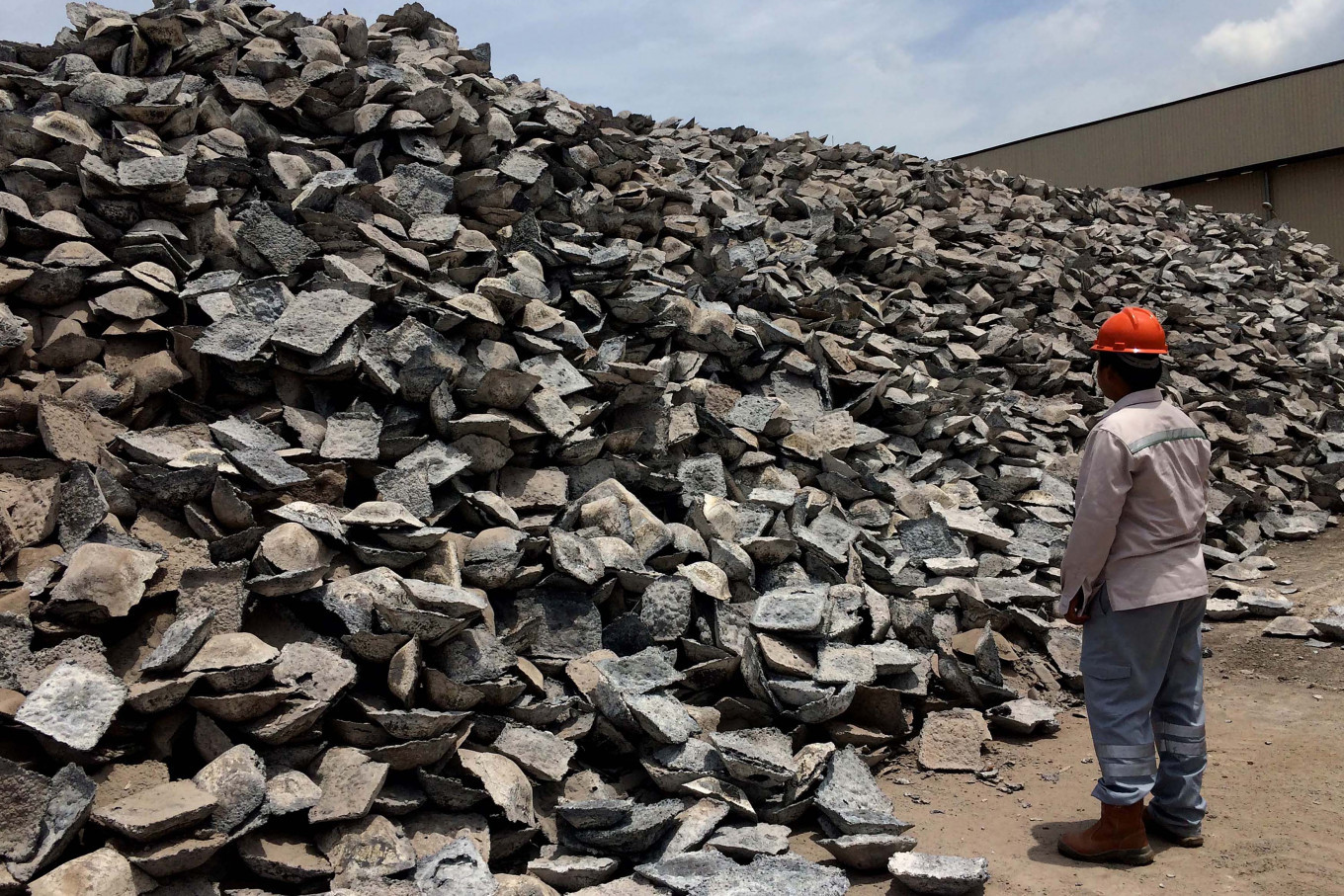Popular Reads
Top Results
Can't find what you're looking for?
View all search resultsPopular Reads
Top Results
Can't find what you're looking for?
View all search resultsIndonesia wants to double lithium pact with Australia to 120,000 tonnes
The government plans to secure an additional 60,000 tonnes of lithium per year under an import agreement with Australia as it strives for a comprehensive electric vehicle (EV) industry.
Change text size
Gift Premium Articles
to Anyone
T
he government is planning to coax an additional 60,000 tonnes of lithium per year from Australia as it strives to build a comprehensive electric vehicle (EV) industry. If agreed, the additional quota would double an earlier deal between Jakarta and Canberra.
Indonesia holds the world’s largest nickel reserves, which is a strong selling point for a country striving to become a global EV production hub, but it lacks domestic supplies of lithium, a material deemed equally important for EV batteries
Coordinating Maritime Affairs and Investment Minister Luhut Pandjaitan said the government hoped to increase lithium imports from Australia and become a battery production base for the Southeast Asia region and possibly the world.
Read also: Indonesia-Australia ties ‘shift up another gear’ at Sydney summit
“Previously, we’ve discussed the import of 60,000 tonnes of lithium, which will be processed in Morowali starting next year. In yesterday’s meeting, I asked for another 60,000 tonnes, and I [suggested] that Australia participate in [some] equity [investment],” he said in an interview with CNBC Indonesia on Monday.
He was referring to a meeting between President Joko “Jokowi” Widodo and Australian Prime Minister Anthony Albanese that took place on July 6.
He went on to say that, under such a scheme, the lithium smelter project would be jointly owned by Indonesia and Australia. “They responded positively to the idea,” he said.
EVs are pushing up demand across the world for battery metals, but those critical resources are concentrated in very few countries, causing concerns about supply chains.
By 2030, batteries are expected to account for 95 percent of lithium demand, and total needs will grow annually by 25 to 26 percent to reach 3.3 million to 3.8 million tonnes of lithium carbonate equivalent, according to a report published by consultancy McKinsey last year.
Roughly 90 percent of the world’s lithium output comes from just three countries, according to the World Economic Forum, namely 52 percent from Australia, 25 percent from Chile, and 13 percent from China.
Read also: Indonesia seeks lithium mineral pact with Australia
Indonesia’s own annual battery demand is set to grow to 20.1 gigawatt-hour (GWh) in 2030 and jump to 59.1 GWh in 2035, according to Chandra, a senior vice president of project management at state-owned PT Indonesia Battery Corporation (IBC), as reported by S&P Global Commodity Insights on March 29.
The 2035 level would require 66,000 lithium carbonate equivalent tonnes of lithium and 53,400 tonnes of graphite, Chandra said, along with 81,000 tonnes, 42,600 tonnes, 39,000 tonnes, 4,700 tonnes and 4,100 tonnes of aluminum, copper, nickel, cobalt and manganese, respectively.
He went on to say that, aside from nickel, Indonesia had "not gone into the other commodities to make the batteries. “So there lies the opportunity for new partners and investment, namely for lithium hydroxide, graphite anode, electrolyte and so on,” Chandra said.
Australian lithium comes from hard-rock mines for the mineral spodumene, while Chile’s lithium is extracted from brines.
China, the third-largest producer worldwide, has a strong foothold in the lithium supply chain, a World Economic Forum (WEF) report said, noting that Chinese companies had acquired around US$5.6 billion worth of lithium assets in countries including Chile, Canada and Australia over the last decade, on top of developing domestic mines. Chinese companies also host 60 percent of the world’s lithium-refining capacity for batteries, the same report reads.










